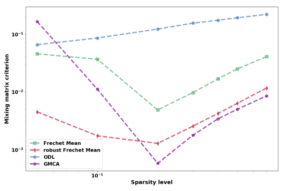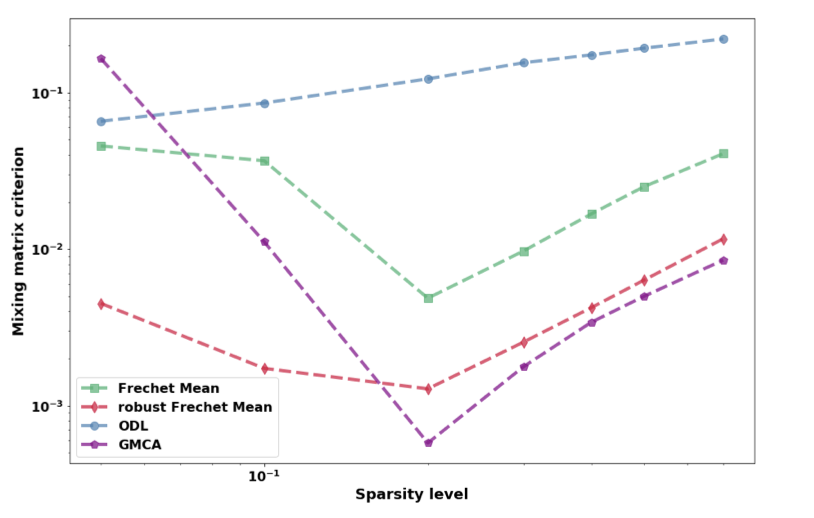
Sparse Blind Source Separation (sBSS) plays a key role in scientific domains as different as biomedical imaging, remote sensing or astrophysics, which require the development of increasingly faster and scalable BSS methods without sacrificing the separation performances. To that end, a new distributed sparse BSS algorithm is introduced based on a mini-batch ex-tension of the Generalized Morphological Component Analysis algorithm (GMCA). Precisely, it combines a robust projected alternate least-squares method with mini-batches optimization. The originality further lies in the use of a manifold-based aggregation of asynchronously estimated mixing ma- trices. Numerical experiments are carried out on realistic spectroscopic spectra, and highlight the ability of the proposed distributed GMCA (dGMCA) to provide very good separation results even when very small mini-batches are used. Quite unexpectedly, it can further outperform the (non-distributed) state-of-the-art methods for highly sparse sources.
Reference: Christophe Kervazo, Tobias Liaudat and Jérôme Bobin.
“Faster and better sparse blind source separation through mini-batch optimization”, Digital Signal Processing, Elsevier, 2020.




